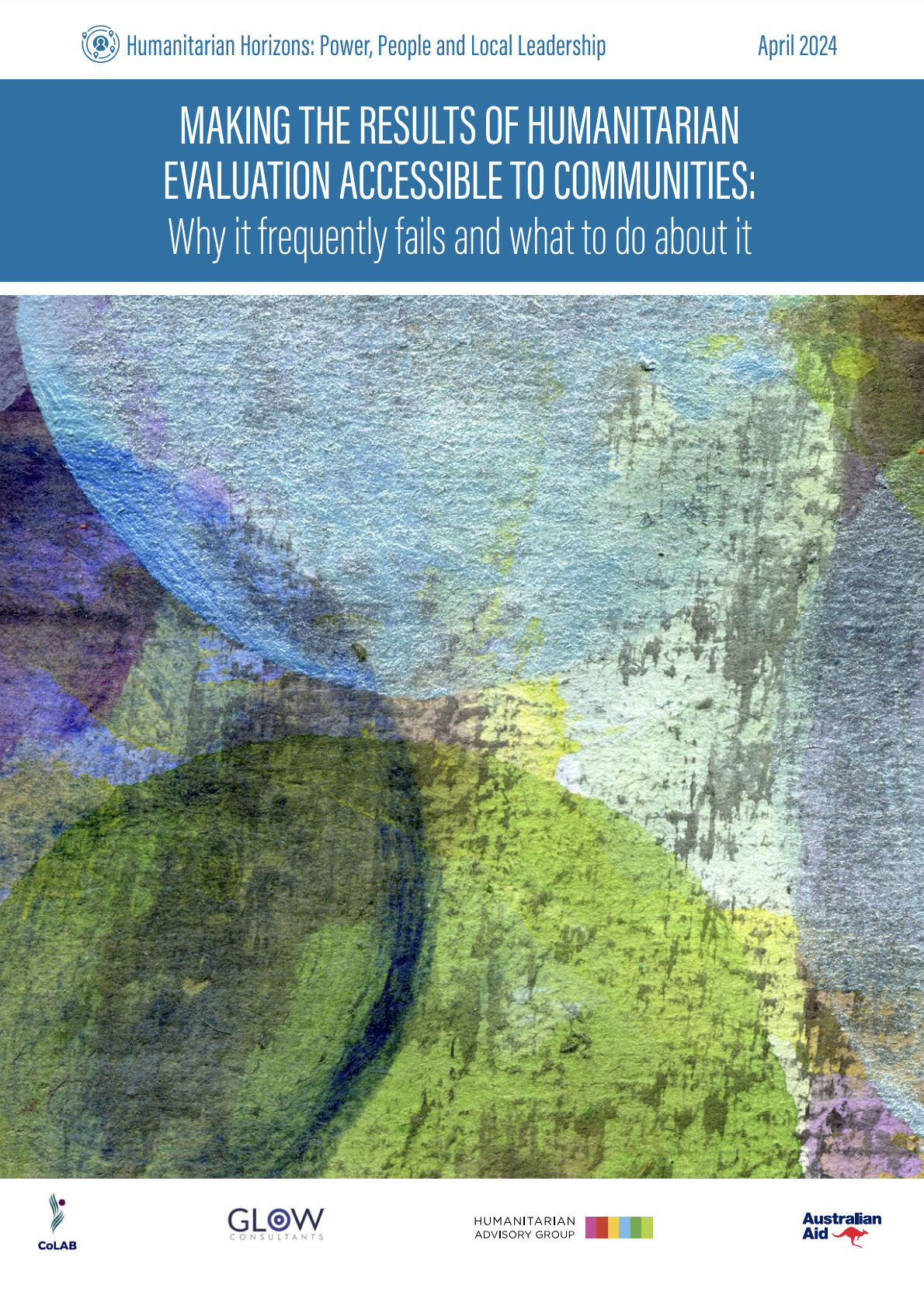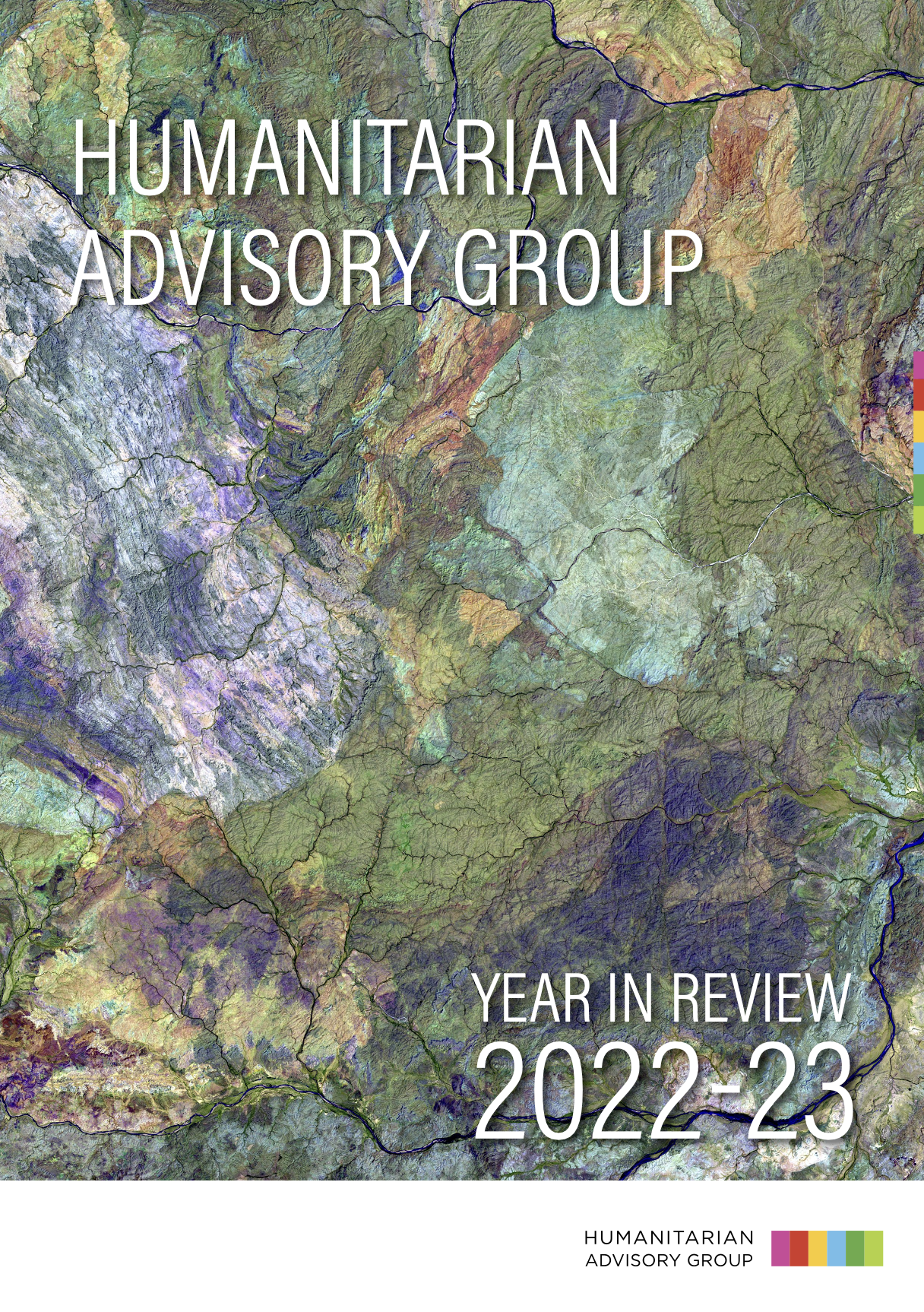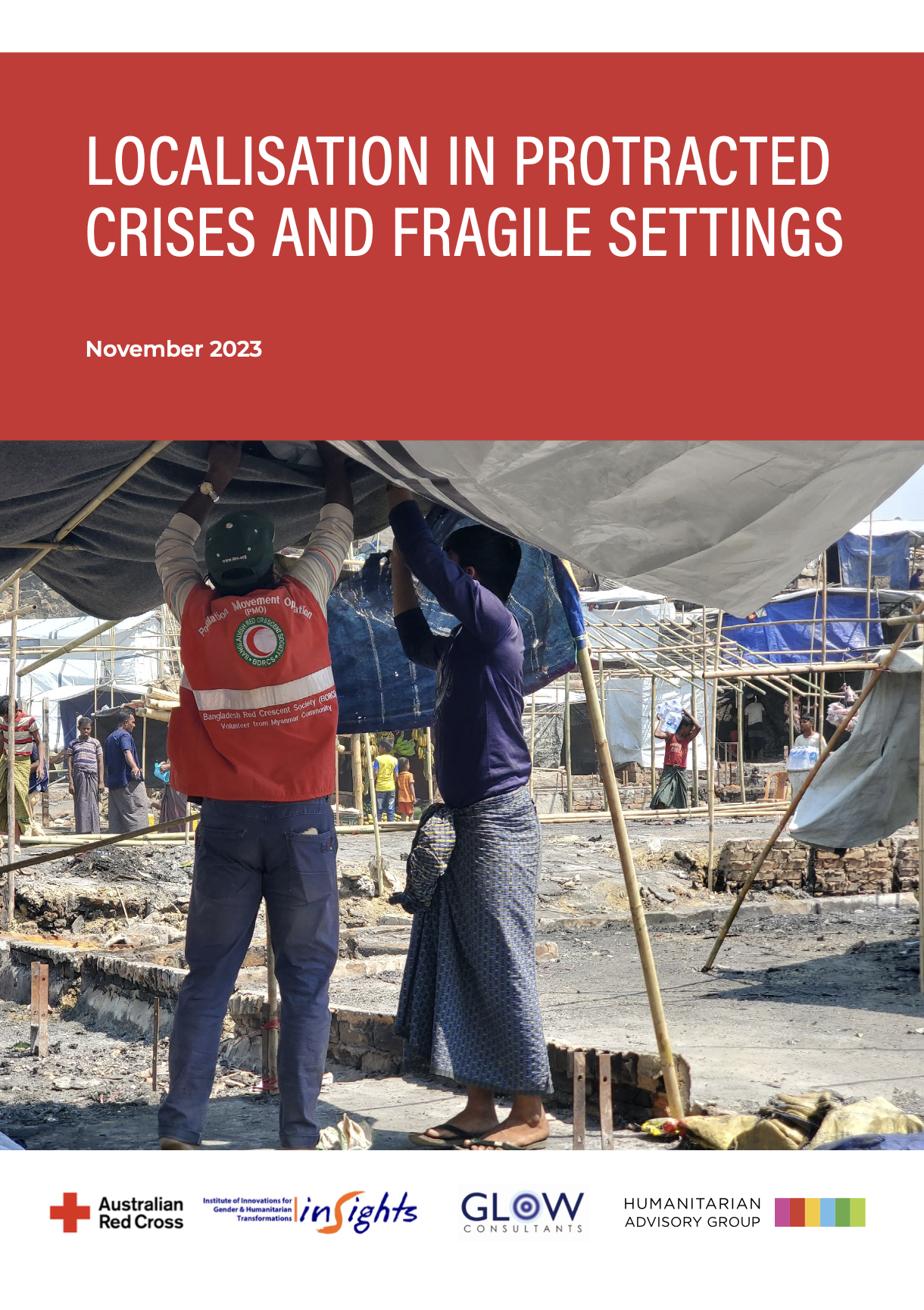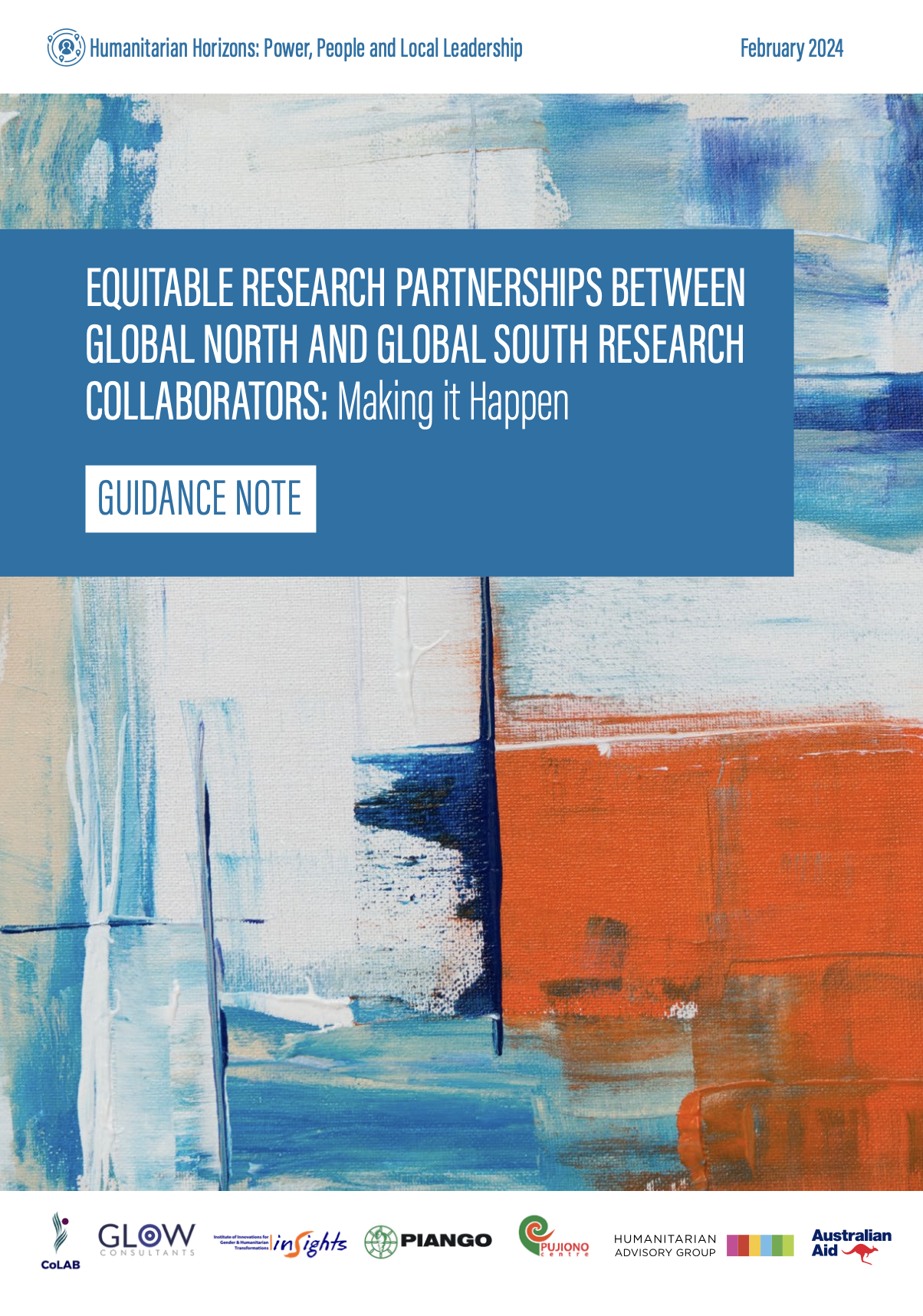The impact of localisation practices that the humanitarian sector has adopted at the community level remains unclear. No systematic process has been undertaken to define the intended outcomes of localisation for crisis-affected populations, or to measure whether change is in fact happening. This doesn’t mean that localisation isn’t having an impact; on the contrary, anecdotes, case studies and research provide context-specific examples of changes and plausible theories of change. Positive and negative outcomes of localised practices have been discussed and documented. However, in the absence of consistent design, data collection and analysis across the sector, we cannot be definitive about if, when and how localisation delivers better humanitarian outcomes for communities.
This paper summarises evidence and ideas about localisation impact at the community level. It identifies key domains of impact that can be integrated into the program management cycle, in order to strengthen data collection and analysis, from inception to evaluation and reflection. It also proposes an approach to data gathering that is based on an articulation and exploration of causal pathways. Its objective is to support humanitarian actors to better define and understand the impact of their localisation practices on crisis- affected populations.







